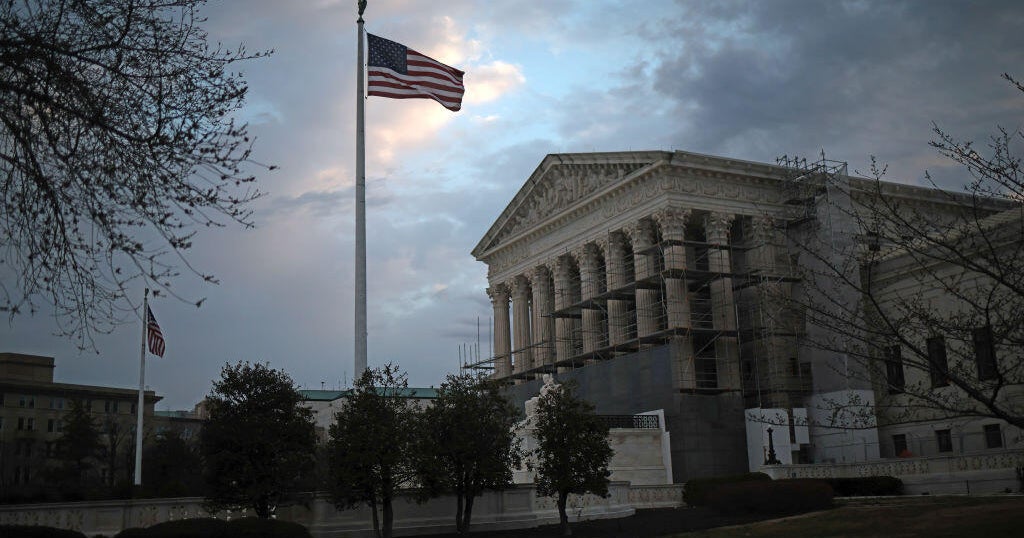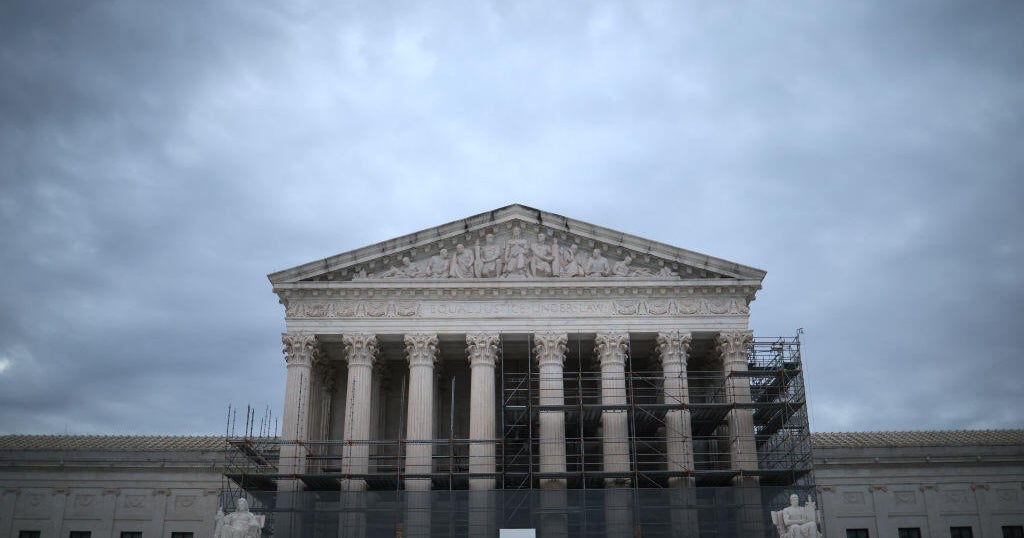Ruth Bader Ginsburg praises Brett Kavanaugh and reflects on gender equality
Supreme Court justice and liberal icon Ruth Bader Ginsburg on Tuesday praised newly-confirmed Justice Brett Kavanaugh for appointing an entirely female staff. Ginsburg spoke about her own history in the fight for gender equality to a packed auditorium at Georgetown Law School.
Ginsburg praised Kavanaugh — whose controversial confirmation was marked by allegations of sexual assault — and remarked that the court's upcoming fall term will be the first time in history that more women will be clerking than men.
"There is a very important first on the Supreme Court this term and it's thanks to our new justice, Justice Kavanaugh," Ginsburg said.
Ginsburg made history herself as being only the second woman in history to be added to the Supreme Court after being nominated by former President Clinton in 1993. Since her confirmation, she has become a leading voice for women's rights and a cultural icon. Ginsburg is often referred to as the "Notorious RBG" and her face has adorned scores of T-shirts and posters with that slogan.
"I should say what we were doing in the 70s — we were getting rid of all of the over-explicit gender-based classification," Ginsburg said. "There was nothing subtle about it. It was women can't do this, women can't do that."
Ginsburg said that while the "explicit barriers" women faced are largely "gone," many still continue to face "unconscious bias." She cited the 1994 lawsuit against AT&T where nine female employees argued that the AT&T Corporation gave them smaller salaries or denied their promotions because of their gender.
Two of Ginsburg's former law clerks — Supreme Court Institute director Dori Bernstein and law partner Ruthanne Deutsch — questioned the justice.
Some of Ginsburg's most prominent Supreme Court cases demonstrate her attention to issues of gender equality. In the 1996 case of United States v. Virginia, Ginsburg wrote the majority opinion affirming that the Virginia Military Institute could no longer restrict admission to men.
On Tuesday, Ginsburg recounted her difficulty landing a job after her graduation from Columbia Law School in 1959. She detailed how a law professor threatened that he would never recommend another Columbia student to a judge of the Southern District of New York if he did not provide Ginsburg with a clerkship.
Ginsburg also spoke of her own marriage with prominent lawyer Martin Ginsburg, who she called "extraordinary." Ginsburg noted that she and her husband had equal roles in the household during a period when a woman was considered responsible for domestic care. Martin Ginsburg died at 78 years old in June 2010.
"It was lucky that I met Marty at a time when the best degree that a girl could have not her BA or her JD, it was her Mrs.," Ginsburg said.
"Marty was the most unusual fellow," she added. "I've said many times he was the only boy I ever knew up to that time who cared that I had a brain."
Ginsburg said that her husband was her "biggest booster" who never regarded her success in the law as a "threat." She described their divvying up of chores and responsibilities, even joking that she was eventually "phased out of the kitchen" by her daughter.
A panel of legal experts followed the discussion between Ginsburg and her clerks. The panel focused on the justice's legal philosophy and writings throughout her career.
"Her legacy teaches us that the rhetoric of feminist jurisiprudence is inherently disruptive, that discursive traditions, norms of erasure, scripts of objectivity must be confronted and challenged to create space for feminist judgment in the law," said Katie L. Gibson, a professor of rhetorical studies at Colorado State University.




